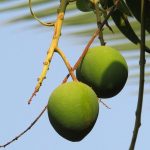African mango, scientifically known as Irvingia gabonensis, is an indigenous fruit to tropical West and Central Africa. It has gained widespread attention in recent years for its remarkable health benefits, particularly its ability to support weight management and enhance overall well-being. This blog post delves into the science behind African mango and provides practical guidance on how to incorporate it into your diet and lifestyle to optimize your health.
**Nutritional Composition and Health Benefits of African Mango**
African mango is a nutrient-rich fruit packed with essential vitamins, minerals, antioxidants, and dietary fiber. It is particularly high in vitamin C, which plays a crucial role in immunity, collagen synthesis, and antioxidant protection. Additionally, African mango contains significant amounts of potassium, magnesium, calcium, iron, and zinc, which support various bodily functions, including heart health, muscle function, and bone density.
The unique combination of nutrients in African mango has been linked to several health benefits, including:
* **Weight Management:** African mango has been shown to promote weight loss and reduce body fat. It contains dietary fiber, which helps increase satiety and reduce calorie intake. Additionally, African mango may help regulate blood sugar levels, preventing insulin resistance and excessive fat storage.
* **Improved Blood Sugar Control:** African mango has been found to have anti-diabetic properties. It may help regulate blood sugar levels by enhancing insulin sensitivity and reducing glucose absorption from the gut.
* **Reduced Cholesterol:** Studies suggest that African mango may help lower cholesterol levels, particularly LDL (bad) cholesterol. It contains phytosterols, which are plant compounds that block the absorption of cholesterol in the digestive tract.
* **Enhanced Heart Health:** African mango's antioxidant and anti-inflammatory properties may protect the heart from damage. It may help reduce oxidative stress, improve blood flow, and support overall cardiovascular health.
* **Increased Energy Levels:** The high nutrient content of African mango can boost energy levels. It provides essential vitamins and minerals that support cellular metabolism and improve overall well-being.
**How to Incorporate African Mango into Your Diet**
African mango can be incorporated into your diet in various ways:
* **Fresh Fruit:** Consume fresh African mango as a snack or dessert. It has a sweet and tangy flavor similar to a cross between mango and citrus.
* **Dried Powder:** African mango powder is available in supplement form. It can be added to smoothies, yogurt, or other food items.
* **Extract:** African mango extract is available in capsules or liquid form. It provides a concentrated dose of the fruit's active compounds.
**Dosage and Safety Considerations**
The recommended dosage of African mango varies depending on the form and purpose of use. It is generally safe for most people, but it is advisable to consult a healthcare professional before taking any supplements or using African mango in high doses.
**Conclusion**
African mango is a powerful superfood with a wealth of health benefits. Its nutritional composition and unique compounds support weight management, blood sugar control, cholesterol reduction, heart health, and overall well-being. By incorporating African mango into your diet and lifestyle, you can harness its potential to improve your health and optimize your vitality.

